How to Utilize 2024 T351 Aluminum for Maximum Strength and Durability
Table of Contents
- Understanding the Unique Properties of 2024 T351 Aluminum Alloys
- Key Mechanical Properties of 2024 T351 Aluminum for Structural Applications
- Best Practices for Fabrication and Welding of 2024 T351 Aluminum
- Finishing Techniques to Enhance the Durability of 2024 T351 Components
- Comparative Analysis: 2024 T351 Aluminum vs. Other Aluminum Alloys in Strength Applications
- The Role of Heat Treatment in Maximizing 2024 T351 Aluminum Performance
- FAQS
- Conclusion
- Related Posts
 When it comes to top-notch materials in 2024, T351 Aluminum is definitely making waves, especially in fields like aerospace and aviation. People really appreciate this alloy because it's super strong but still light—talk about a perfect combo! And it’s not just about keeping things lightweight; it also holds up well against fatigue, so it’s great for those really critical structural roles. The Aluminum Association even says using 2024 T351 Aluminum can boost overall structural strength by about 15% compared to older alloys. Here at Shanghai Miandi Metal Group Co., Ltd., we get how important this stuff is, so we offer a wide range of aluminum products, including the 2024 T351 version. It’s designed to handle the tough demands of shipbuilding, aircraft, and other high-stress settings. By harnessing the unique benefits of 2024 T351 Aluminum, industries can really push their limits—boosting strength and durability—so the performance stays reliable even in the most challenging environments.
When it comes to top-notch materials in 2024, T351 Aluminum is definitely making waves, especially in fields like aerospace and aviation. People really appreciate this alloy because it's super strong but still light—talk about a perfect combo! And it’s not just about keeping things lightweight; it also holds up well against fatigue, so it’s great for those really critical structural roles. The Aluminum Association even says using 2024 T351 Aluminum can boost overall structural strength by about 15% compared to older alloys. Here at Shanghai Miandi Metal Group Co., Ltd., we get how important this stuff is, so we offer a wide range of aluminum products, including the 2024 T351 version. It’s designed to handle the tough demands of shipbuilding, aircraft, and other high-stress settings. By harnessing the unique benefits of 2024 T351 Aluminum, industries can really push their limits—boosting strength and durability—so the performance stays reliable even in the most challenging environments.
Understanding the Unique Properties of 2024 T351 Aluminum Alloys
So, when we’re talking about 2024 T351 aluminum alloys, they’re pretty impressive because of their awesome strength-to-weight ratio and durability. That means they can handle a lot of stress without getting weighed down, which is a huge plus for stuff like aircraft parts, military vehicles, or any heavy-duty structures. The secret sauce is in their unique mix of elements — mainly aluminum, copper, and some others like manganese and magnesium — all working together to make the material tough enough to take heavy loads while still being lightweight. You know, it’s like having your cake and eating it too!

One of the coolest things about 2024 T351 is how well it resists fatigue, so it doesn’t easily wear out when it’s constantly under stress. And when you hear ‘T351’, it’s all about how it’s been heat-treated to boost its mechanical properties — basically giving it that extra edge. Knowing these little details helps engineers and designers make smarter choices, creating stuff that’s not only super strong but also lasts longer, even in tough conditions. In the end, understanding what makes this alloy special just leads to better performance and longer-lasting products. Pretty neat, right?
Key Mechanical Properties of 2024 T351 Aluminum for Structural Applications
When it comes to structural stuff, especially in industries like aerospace and aviation, 2024 T351 aluminum really stands out. It’s pretty much the go-to because of its high strength without adding much weight. I mean, this alloy has a tensile strength around 570 MPa and a yield strength near 480 MPa, so it can take a decent amount of load but still keeps things lightweight. That's such a big deal when you're talking about building components that need to be both tough and efficient.
If you're thinking about using 2024 T351 aluminum, here are a few tips to get the most out of it: First off, make sure you get the heat treatment right. The T351 temper really boosts its toughness. Also, when it comes to welding, use techniques that play well with this alloy — otherwise, you might compromise its strength. And finally, regular check-ups are a smart move. Catching any stress spots early can seriously help extend the lifespan of your structures.
At Shanghai Miandi Metal Group, we’ve got a bunch of aluminum products that can pair really well with 2024 T351. Whether it’s plates or round tubes, our stuff is pretty much essential in sectors like shipbuilding, where strength and durability are super important to meet safety standards and perform well. Picking the right aluminum products for your specific needs means you can build with confidence and keep things safe and reliable.
Best Practices for Fabrication and Welding of 2024 T351 Aluminum
When you're working with fabricating and welding 2024 T351 aluminum, it’s really important to follow best practices if you want it to be as strong and durable as possible. This alloy is pretty popular in aerospace and auto industries because it offers a great weight-to-strength ratio. According to the Aluminum Association, 2024 T351 can reach an ultimate tensile strength of about 450 MPa — that’s pretty high compared to many other aluminum alloys out there. To keep those mechanical properties intact, you’ve gotta stick to precise welding techniques. For example, preheating the material to around 250°F can really help reduce the chances of cracking during welding.

Also, picking the right filler material is a must if you want your welds to hold up well. Using alloys like 4045 or 4047 can improve the joint performance because they play nicely with the base metal and prevent unwanted alloy mixing. Industry insights tell us that if welding isn’t done properly, the strength of 2024 T351 components can drop by as much as 30%. That’s a huge hit! So, after welding, doing some heat treatment can help recover some of that lost strength. Overall, following these proper techniques doesn’t just make the welds stronger — it also helps ensure your finished parts last longer, especially in tough environments.
Finishing Techniques to Enhance the Durability of 2024 T351 Components
When we're talking about making 2024 T351 aluminum parts last longer, the finishing touches really matter.
Anodizing, for example, is one of the best options out there. It adds this thicker oxide layer that helps resist corrosion and boosts wear resistance. According to the Aluminum Association, anodized aluminum can be about 30% harder than the untreated kind, which makes it perfect for things that need to stand up to a lot of stress and last a long time.
Then there are coatings like epoxy or polyurethane—these aren’t just for looks. They actually create a tough shield against the elements. The folks at ASTM say that coated aluminum parts can last about 25% longer, especially in extreme conditions. By using these kinds of finishes, manufacturers can make sure their 2024 T351 aluminum components not only meet but often beat industry standards—whether it's for aerospace or automotive use. It’s all about making things stronger, more durable, and ready for the long haul.
Comparative Analysis: 2024 T351 Aluminum vs. Other Aluminum Alloys in Strength Applications
When you're looking into different aluminum alloys for strength-related stuff, 2024 T351 really stands out because of its impressive mechanical properties. Compared to other options like 6061 and 7075, this particular alloy tends to have higher yield and tensile strength, which is why it’s often the go-to choice for things like aerospace and military applications. Plus, it has great fatigue resistance, so it can handle repetitive stress without giving out — super important in high-performance settings. That being said, while 2024 T351 is top-notch when it comes to strength, it doesn't resist corrosion as well, so if you're using it in harsh environments, you'll want to add some surface treatments to keep it protected.
On the flip side, 6061 aluminum brings a good balance—it’s quite strong and resists corrosion pretty well, making it decent for structural stuff. But it doesn’t quite match the high strength-to-weight ratio of 2024 T351. Then there's 7075, which is really strong—actually stronger than both 2024 and 6061—but it can be more expensive and trickier to find. Basically, each alloy has its own sweet spot: 2024 T351 is perfect when maximum strength with a lighter weight is the goal, whereas 6061 and 7075 are better for situations where factors like cost and corrosion resistance matter more. It’s all about picking the right tool for the job, you know?
The Role of Heat Treatment in Maximizing 2024 T351 Aluminum Performance
So, when it comes to the 2024 T351 aluminum, its performance really depends a lot on how you treat it with heat. That process is all about carefully heating it up and then cooling it down in a controlled way — and honestly, that’s what makes it stronger and more durable. According to the folks at the Aluminum Association, if you do it right, this alloy can reach a yield strength of up to 70 ksi (you know, pounds per square inch). That’s pretty impressive, especially when you think about its role in aerospace stuff where strength really matters.
Now, if you’re working with 2024 T351, don’t forget about the tempering part of the heat treatment. The T351 process involves a solution heat treatment, then quenching, and finally aging. This combo is supposed to boost both tensile and fatigue strength — pretty critical, right? To do it right, keep an eye on the heating temperature and how long you hold it there. Industry studies suggest that getting these just right can bump up the material’s properties by over 25%, which is pretty significant.
**A quick tip:** Make sure you’re following the industry specs, like ASM guidelines, when choosing your processing parameters. Also, it’s a good idea to check the material after treatment — this way you can spot if any tweaks are needed to get it performing at its best. Just takes some attention to detail, but it’s worth it!
FAQS
: The key mechanical properties of 2024 T351 aluminum include a tensile strength of approximately 570 MPa and a yield strength of around 480 MPa, making it suitable for structural applications, especially in aviation and aerospace.
The T351 temper enhances the mechanical properties of 2024 aluminum by improving its toughness, which is crucial for its performance in structural applications.
Effective finishing techniques include anodizing, which adds a protective oxide layer, and applying coatings like epoxy or polyurethane that provide a robust barrier against the elements.
Anodized aluminum can exhibit a 30% increase in hardness compared to untreated surfaces, making it more suitable for demanding applications.
Heat treatment enhances the strength and durability of 2024 T351 aluminum. Properly treated, it can achieve a yield strength of up to 70 ksi, essential for high-strength applications.
The heating temperature and dwelling time are critical parameters in the heat treatment process, as optimal conditions can lead to an increase in mechanical properties by over 25%.
Regular inspections can help identify fatigue or stress points early, which can extend the lifespan of structures made from this aluminum alloy.
Shanghai Miandi Metal Group Co., Ltd. distributes a range of aluminum products including plates and round tubes, which are critical for sectors like shipbuilding that require strength and durability.
Conclusion
Have you ever wondered about the ins and outs of 2024 T351 Aluminum? Well, this article dives into what makes this alloy stand out—its unique properties and tough mechanical characteristics that really make it great for all kinds of structural work. It also shares some handy tips on how to properly fabricate and weld it so everything works smoothly, plus finishing techniques that help boost its overall durability. If you’re curious about how it stacks up against other aluminum options, there’s even a comparison showing why 2024 T351 often comes out on top—especially in tough environments.
The piece also points out how crucial heat treatment is if you want to get the most out of this alloy. It’s pretty clear why industries like aviation, aerospace, and shipbuilding love it—because of its reliability and strength. And, by the way, Shanghai Miandi Metal Group Co., Ltd. is in a great spot to supply all kinds of aluminum products, including 2024 T351. So if you’re on the hunt for high-strength, durable materials for your projects, they might just have what you need.
Related Posts
-

T6526 Ultimate Guide to Transforming Your Supply Chain Efficiency
-
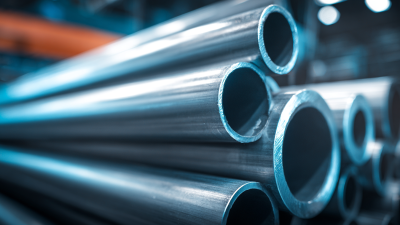
Understanding the Unique Benefits of 6061 T6 Aluminium Tube for Global Buyers
-
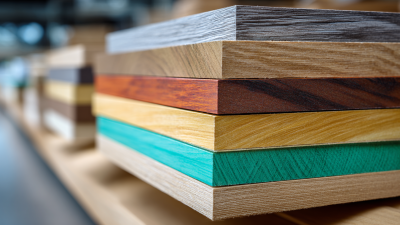
Innovative Solutions for Choosing the Right China Aluminum Plate Manufacturers
-
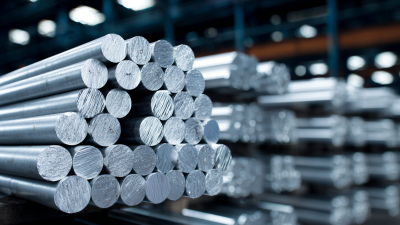
Top Strategies for Sourcing Affordable 6061 T6 Aluminum in the Global Market
-
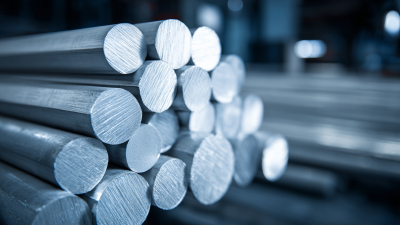
Ultimate Guide to Selecting Your Perfect Customize 6082 Aluminum Bar
-
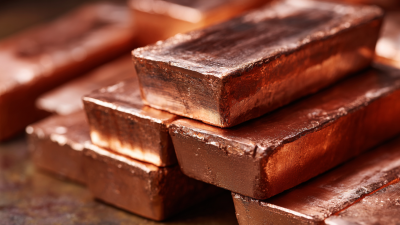
2025 Copper Price Forecast Unveiling 5 Trends Every Global Buyer Must Know
Blog Tags:

